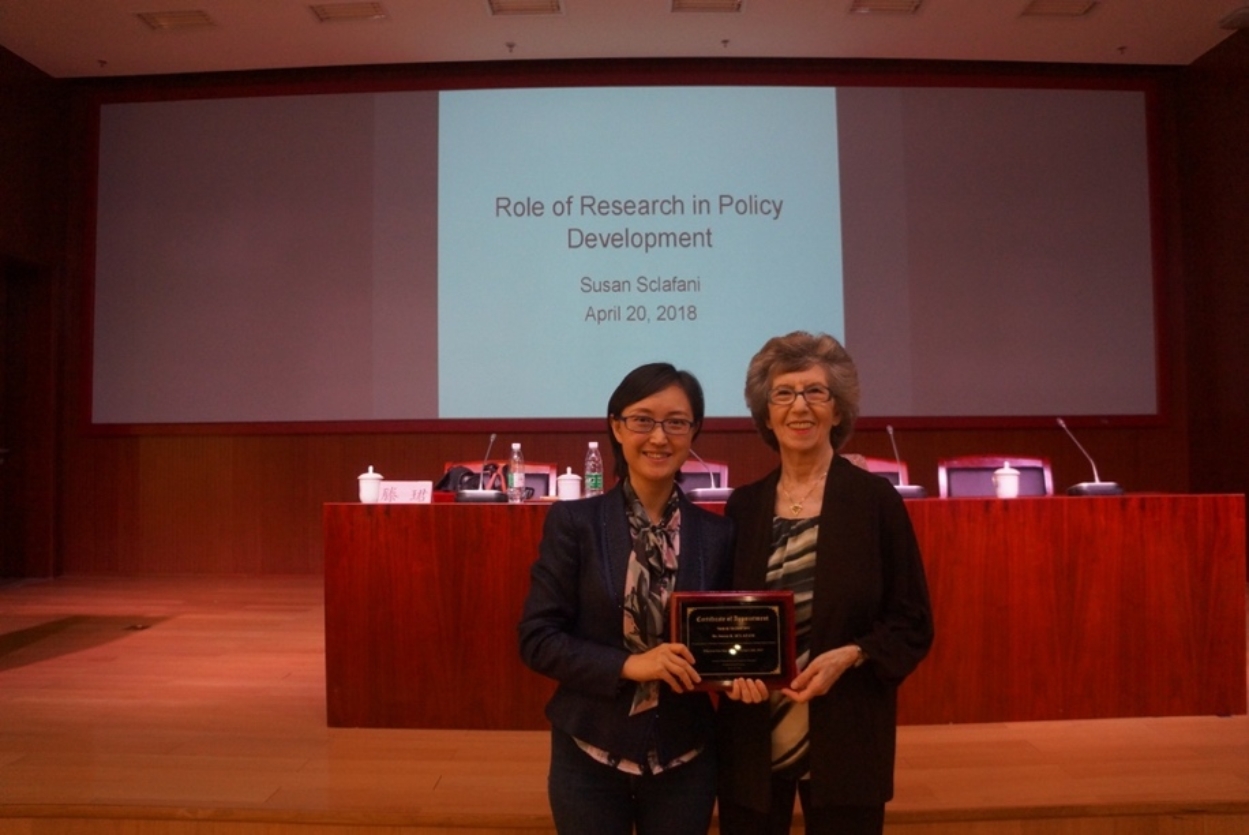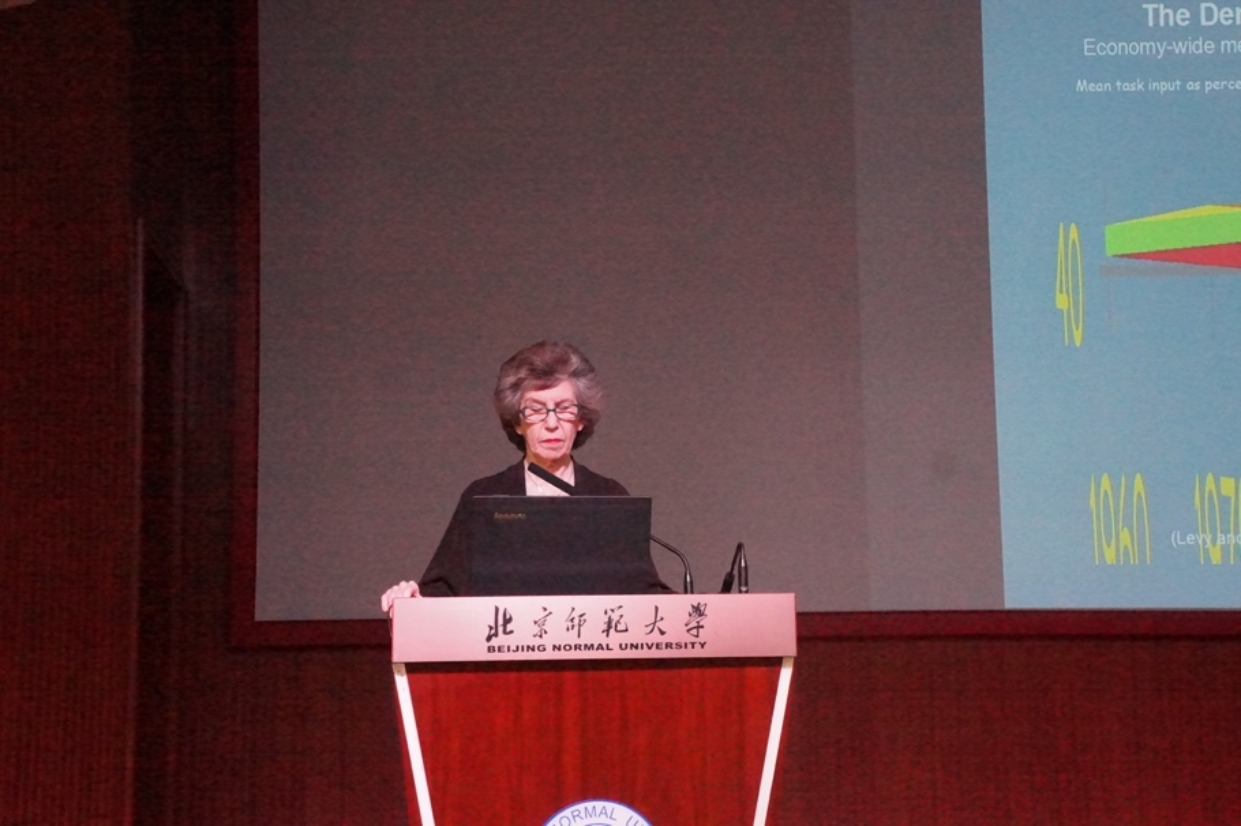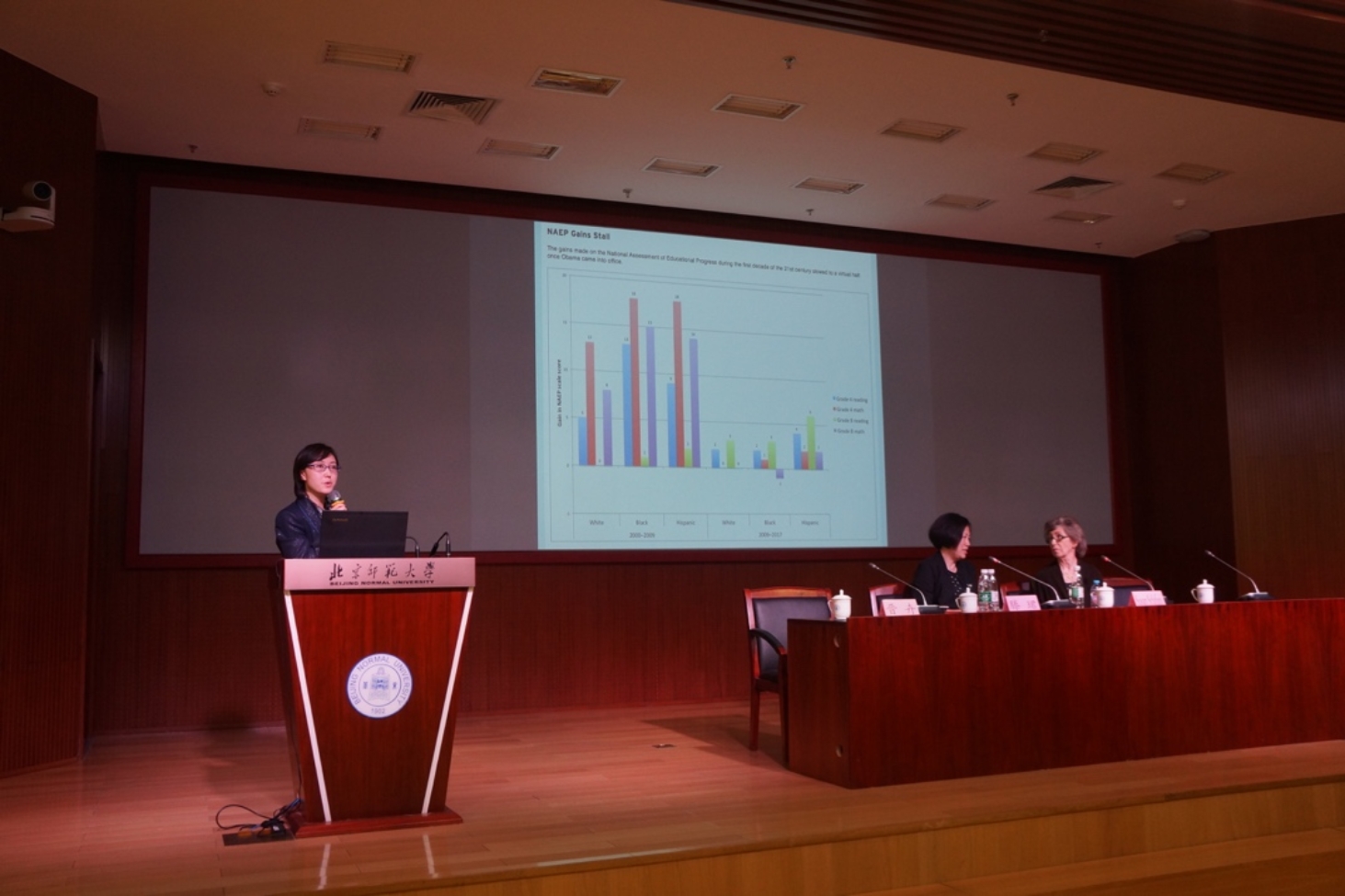On April 20, 2018, Dr. Susan Sclafani, former US Assistant Secretary of Education delivered a lecture entitled “The Role of Research in Policy Development” for IICE’s International Education Podium. The lecture was chaired by Associate Prof. TENG Jun and attended by faculty members and graduate students from the IICE and approximately 140 primary school principals.
Dr. Sclafani began her lecture by illustrating the changing demand for technology in today’s world. She argued that the requirements for conventional and unconventional manual skills and conventional cognitive skills have been reduced today, but there have been increasing demands for unconventional analytical and interactive skills. She pointed out jobs based upon innovation and creation were promising in US. Then Dr. Sclafani introduced the background for the educational act No Child Left Behind (NCLB) when US students underperformed in both National Assessment of Educational Progress (NAEP) and Program for International Student Assessment (PISA), the quality of teacher education was not guaranteed, and the gap between students of different social classes hugely varied. She explained that the four pillars of NCLB were accountability, local governments’ power, research-based practices and parents’ involvement and choice, and research-based practices played an especially important role in improving students’ skills in reading, mathematics and science. Prof. Sclafani shared the data that compared with 2000, the NAEP results in 2007 showed that the proportion of students that reached ‘basic and above’ and ‘proficient’ both increased, but fourth-year students witnessed a more significant increase in the progress than eighth-year students, and white students made more progress than students of ethnic groups. Dr. Sclafani also talked about the lessons that needed to be learnt from NCLB, including the limited resources schools could obtain from the government, the ignorance of arts and science education while too much emphasis on reading and mathematics, the downplaying of the cultivation of students’ talent but sole focus on students’ achievement in standardized tests.
Later, Dr. Sclafani briefed about the educational policy development in US from 2008 to 2017, including State Common Core Standards, Every Student Success Acts, and the educational policy implementations of Trump Administration.
At the end of the lecture, Dr. Sclafani discussed with participants in the Q&A session. When asked by a headmaster "what is the most important ability of students, and what kind of courses can cultivate this key ability?", Dr. Sclafani stressed the importance of the ability of problem-solving, especially solving complex and unconventional problems. To cultivate this ability, she argued that the courses offered should be systematic and structured. Teachers need to be able to divide a whole problem into small progressive problems skillfully, so that students can gradually acquire the ability to solve problems. At last, Professor TENG Jun concluded that though there are many differences between the United States and China, the pursuit of education equity and quality education is the common pursuit for both countries, and both countries can learn from each other’s strengths.



